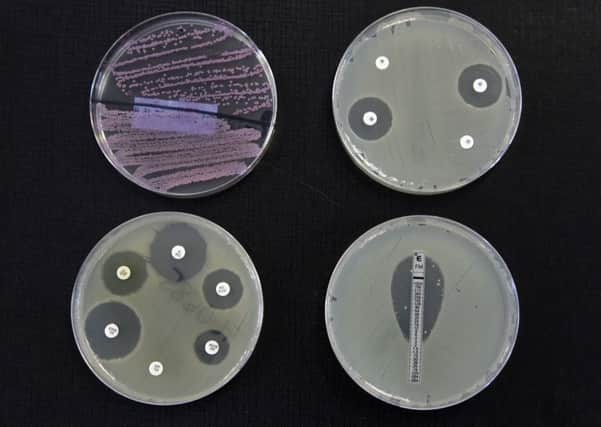University of York scientists find bacteria ‘trap’ to help tackle antibiotic resistance


Scientists at the University of York have developed a new method of “trapping” individual bacteria to identify their reaction to drugs.
Current methods test bacteria’s reaction to antibiotics by analysing samples containing billions of the organisms, usually taking up to 48 hours to get a result.
Advertisement
Hide AdAdvertisement
Hide AdThe new test can detect the susceptibility of bacteria to antibiotics in just one hour and is more accurate than analysing batches of the germs, the research team said. It could help reduce antibiotic use by enabling medics to choose the right drugs more quickly for deadly health conditions like sepsis.
Professor Thomas Krauss, who led the research team, said: “This method would allow clinicians to prescribe effective, targeted antibiotics early on in an infection which would lead to improved clinical outcomes whilst reducing overall levels of antibiotic use.
“The aim is to get the right drug to the right patient at the right time.”
For the first time, the researchers were able to look at both the shape and swimming ability of hundreds of single bacteria at once. The research found that the most effective drugs interfered with the bacteria’s motion and shape.
Advertisement
Hide AdAdvertisement
Hide AdPhD student Giampaolo Pitruzzello, lead author of the study, said: “Individual bacteria behave differently from one another and so looking at them as one large group can mean that inaccurate assumptions are made.
“This can lead to delayed or prolonged treatment regimes.
“We wanted a method that allowed clinical decisions to be made faster and more accurately.
“This meant finding a way of trapping individual bacteria and testing multiple features at once, rather than growing large cultures in a dish.”
The team put bacteria on glass slides and directed them into tiny traps where they injected drugs and monitored how they reacted.
Advertisement
Hide AdAdvertisement
Hide AdDr Adrian Evans, co-author and specialist in uro-gynaecology at York Hospital, said: “This new technique offers a quick result so we can target more precisely which antibiotic to use to get patients better quicker. This may well help reduce the burden of sepsis in our communities, which is an ever-increasing problem.”
Growing resistance to antibiotics is seen as a global threat to human health, with medics around the world being urged to limit the use of the drugs.
Warnings have been made that routine hospital operations will become increasingly unsafe because drugs are less effective at tackling hospital-acquired infections.
The York research has been published in the journal Lab on a Chip by the Royal Society of Chemistry.